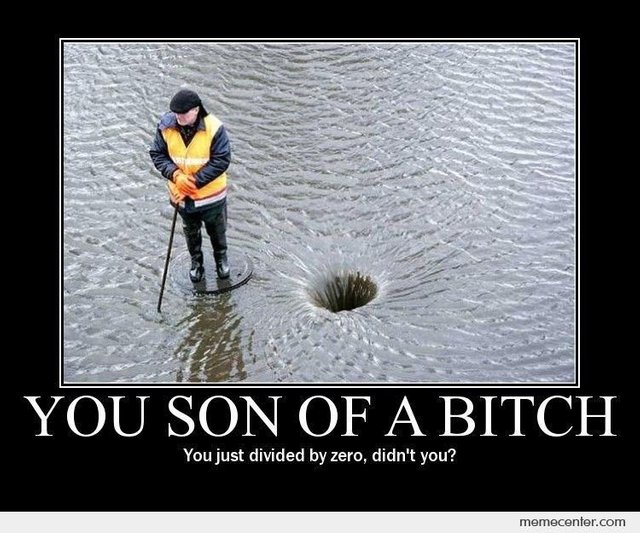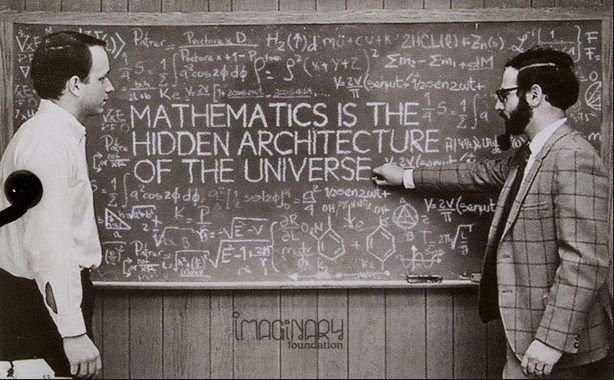As usual I apologize in advance for my bad English. I feel very bad feeling when someone speaks a bad Italian, so I understand you may feel bad because of my poor English.
Anyhow, I was following a discussions about "the language of aliens" , made by an italian linguist, here and I was surprised when I've read the amount of people talking about "well, just use mathematics, they will understand. Because mathematics is the language of the universe".
Well, I know this argument is very common among physicists , especially when theoretical , even if, being honest, I've found this very biased.
My point is, mathematics is quite an umbrella word. By example, when you think to greeks, they had "mathematics" for sure: unfortunately, what they named as "mathematics" was named as "geometry". Most of their proofs were based on geometry, drawing lines and circles. Now, of course this was an amazing way to "Investigate the universe", since geometry is WAY connected with physics: geometry is "how big actual things are".
Unfortunately, this way of using geometry wasn't that efficient. Using geometry you could understand the "infinity", like if you go with parallel lines touching each other, or (the same) a tangent when you reach 90°: if you try to paint the issue, you can "understand" something like "infinity". When it comes to "0", (zero) then the issue is a mess. The concept of zero in euclidian geometry is a mess. Which geometrical entity represents the "zero"? A point? Well, which kind of point? Circular point? Triple point? Empty space? Then, space has cardinality? Uhm... even worst.
So, geometry was the "language of physics", but before arabs bring to Europe the indian numbers, with the idea of "0", it was not that good. And this is why greeks were using rational numbers and not real numbers, ending in conclusions like "speed doesn't exists", just because they used the wrong class of numbers to describe a differential problem.
Later on, what was called "geometry" , separated by "mathematics" (which was about numbers) , merged again with Algebra. Which means, now is math again, for a while was not. Also, before of Cantor was not that clear how "the infinity" matched with cardinality of some class of numbers. If "mathematics" was an absolute thing, say "the language of the universe", we could conclude the universe changed the was it talks, pretty dramatically.
Mathematics has its history , its evolution, from a period where we had a new theorem proven each century, from the modern day, when we proof ~150.000 new theorems a year.
Then, if "mathematics is the language of the universe", either the universe changed dramatically, or we need to rephrase this sentence:
"mathematics is the best tool we have to understand the universe".
This makes sense , but... it's about tools. Meaning, it makes sense until we cannot have a better tool.
When I say that, people says "your point is void, just because you cannot find a better tool".
Are you sure I cannot imagine one?
Let's take a simple problem: "if I move 4 meters each 2 seconds, how much do I take to cover 10000 meters"?
It is a trivial problem, just a couple of divisions. So math can answer it.
Now, let's try some alternative way:
step = 4
d_time = 2
distance = 0
time = 0
while (10000 > distance)
{
distance = distance + step // each step we do 4 meters
time = time + d_time // each step takes two seconds
}
print time
What I have done with this terrible monkey-like simulation is to take the problem and "translate" it into a pseudo-programming language. It is not precise (it is just because of how I choose the example) , but actually it does its job.
It has pro and cons: if the problem is easy, you would probably prefer a stupid division. If the problem could result in a very complex mathematical issue, to translate it into an algorithm could be convenient. Very, very convenient.
And to say "algorithms" are a possible alternative to math is not that senseless: just read here and here .
Now, could programming become the new mathematics, in the research field?
Well, it's happening now.
- Number crunching is more and more important , every day.
- Computer simulations are gaining importance, every day.
- The amount of data collected with experiments is that big, only computers can deal with it.
of course, one could tell me that you need to know maths, before of programming. I am not sure of that. Actually when you program what you do is to translate from one language to another. In the example above, I just translated from natural language to the artificial one. Despite of the fact the result is not efficient, the result is there.
Again, one could tell me this example proofs without math, algorithms are not such efficient. Sure I can translate the problem like that, without doing any math, and this is inefficient.
Buuuut... what you mean when you say "efficient"? Sure, you can do just a division in your mind, it will take ~1 seconds for you. How much does it costs a second of your work? And how much it costs the work of the computer , even solving it in the "inefficient" way?
Well.... still cheaper.
Whether people will keep doing math with formulas and everything, or doing computer simulations, is a matter of budget and money. Of one FTE (Full Time Equivalent, one day of work) of a mathematician doing formula is MORE expensive than the time a computer will take to do the same, the computer won the job.
Now, imagine in 30-40 years, each and every book of physics will print with the algorithm instead of the formula. It can be done: lambda calculus matches turing-completeness. Then , everyone doing physics will possibly use Hoare Logics to develop formulas, and write the formula in terms of algorithms.
Now we have a (better?) tool which could replace maths when it comes to understand the universe. And there are chances this could be very effective, or at least cheaper.
In this kind of future, you could fine people saying
"nature speaks in terms of computing".
And... oops. It's not me saying that: look here. ( https://en.wikipedia.org/wiki/Digital_physics )
This was the first argument: it may be there is a better tool to understand the universe.
The second argument is: no, universe is NOT speaking math. It looks like. But it is not true.
Many concepts in mathematics are not matching physics at all. Nevertheless, physicists are still using them... because it works. In terms of pure logics, this could be questioned: there is no evidence of any physical entity with the cardinality of Aleph-naught ( https://en.wikipedia.org/wiki/Aleph_number#Aleph-naught ), AKA Aleph-zero.
If the universe was speaking math, then math should not contain natural numbers: there is no existing entity proven to work by induction, neither to have such a cardinality.
When we go with "real" numbers, ( https://en.wikipedia.org/wiki/Real_number ) it's even worst. There is no known entity in physics which behaves like a complete continuum, and no entity which has ALL the requirements we see into the definition of this class. Whatever entity we know, can be described with a finite cardinality, which ends in discrete numbers. When we go deep into very little we find it's not "complete": we see "gaps".
Which means: in nature we know no entity which respects the Least-upper-bound property. ( https://en.wikipedia.org/wiki/Least-upper-bound_property )
Sure, both natural and real numbers are very useful. They "approximate" very well the point, but... we are going from "the universe speaks math" to "the universe sort-of speaks some dialect which is very close to mathematics". Which means, mathematics is the best tool to understand the universe, until we find a better one. If you don't believe this, just bring me a physical entity which has ALL the properties of quaternions. (also, being complete like R ).
So no, in terms of logics, if universe speaks math, math should be done of discrete sets, having no completeness, which means, no differential calculus. "The limit" of something is nothing you can match with an existing phenomena: there is nothing , in our universe, having "a limit to infinity". And... fuck, the infinity. Physicists are doing a huge utilization of it: may someone show me , in our universe, a single phenomena/entity having ALL the properties of "infinity"? Aleph zero, anyone? Aleph one?
So no, the universe is NOT speaking math. If it was, we had many entities which are not really existing, like sedenions, and so.
What we know is that math speakers are, so far, the better people when it comes to understand nature. Time ago it was time for philosophers. Then also theologist had some year of glory. Next, it could be the computing era.
So be prepared: in some years, you could read scientist saying "the universe speaks computational".
Or not.

Mathematics was my ticket out of poor life. Since I was 6 I spent 30 minutes a day doing some kind of math. Now I am 31, PhD in physical chemistry. Still doing the math, statistics, signal analysis... Unfortunately, most of the people don't understand even the basics, simply don't have the feeling for the math. Here is my post about the vaccination and the very easy elementary school math: https://steemit.com/health/@alexs1320/mathematics-of-vaccination
Downvoting a post can decrease pending rewards and make it less visible. Common reasons:
Submit
some say that

Downvoting a post can decrease pending rewards and make it less visible. Common reasons:
Submit
there seem to be a lot of correlations core-relations
Downvoting a post can decrease pending rewards and make it less visible. Common reasons:
Submit
I dont understand
Mathematics is too hard.
Downvoting a post can decrease pending rewards and make it less visible. Common reasons:
Submit
your post today is good,, i like its
Downvoting a post can decrease pending rewards and make it less visible. Common reasons:
Submit